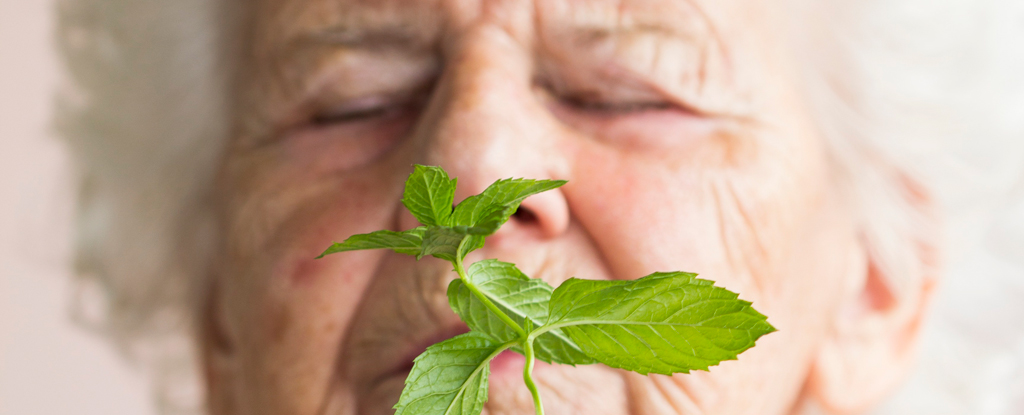Recent scientific discoveries have revealed a fascinating link between our sense of smell and cognitive health, particularly in relation to Alzheimer’s disease. Research indicating that menthol exposure can improve cognitive function in mice with Alzheimer’s has opened new avenues for understanding how olfactory stimuli can affect the brain. This breakthrough suggests that the olfactory system may not only enhance our sensory experiences but also offer therapeutic benefits for neurodegenerative diseases.
Understanding the Role of Olfaction in Cognitive Health
Olfaction, or the sense of smell, is one of the oldest sensory modalities, serving critical roles in survival across various organisms, including humans. Unlike other senses, our ability to identify thousands of distinct smells hinges on specialized receptors in our olfactory epithelium, which are continuously regenerated. These receptors not only contribute to our ability to enjoy food and detect environmental dangers but also serve as crucial indicators of health.
Cognitive decline, marked by conditions such as Alzheimer’s and Parkinson’s diseases, is frequently associated with a diminished ability to detect scents. Recent studies suggest that restoring and training the sense of smell may help to reverse cognitive deficits and enhance memory performance.
“The results suggest that odors and immune modulators may play an important role in the prevention and treatment of Alzheimer’s and other diseases related to the central nervous system.” – Noelia Casares, CIMA
Menthol’s Promise in Cognitive Improvement
Recent research conducted by scientists at the Center for Applied Medical Research (CIMA) in Spain demonstrates that inhaling menthol can significantly improve cognitive function in mice with Alzheimer’s disease. This study, published in April 2023, showed that short-term exposure to menthol over six months not only prevented cognitive decline but also enhanced the cognitive performance of healthy mice.
The researchers found that menthol reduced levels of interleukin-1-beta (IL-1β), a protein associated with inflammation and cognitive deterioration. This significant finding builds upon existing literature connecting olfactory stimuli with brain function, illuminating the potential role of certain odors as therapeutic agents.
Elucidating the Mechanisms Behind Olfactory Influence
Olfactory signals play a key role in our immune responses and overall brain health. The study’s authors posited that the interaction between olfactory receptors and cognitive processes might offer new insights into treatments for neurodegenerative diseases. The ability of menthol to modulate inflammatory responses highlights the intertwined nature of our sensory and immune systems.
A Historical Perspective on Smell and Health
The importance of smell extends beyond immediate survival; it has historical roots deeply embedded in various cultures. Throughout ancient Egypt, Greece, and China, fragrances were believed to possess magical properties for medical treatments and purification rituals. Understanding this long-standing reverence for olfactory experiences illustrates how humanity has historically relied on scents for health and wellbeing.
The Diagnostic Value of Olfactory Loss
In contemporary medicine, the decline of olfactory function has been noted as a potential biological marker for various neurodegenerative diseases. Recognizing the diagnostic potential of smell loss is increasingly significant, as it may serve as an early indicator of cognitive decline, providing an opportunity for earlier interventions.
Can Training Your Sense of Smell Reverse Cognitive Decline?
Beyond the intriguing findings with menthol, recent studies have explored whether training one’s sense of smell can help restore cognitive abilities. Scent training, which involves repeated exposure to different smells, has shown promise in enhancing olfactory sensitivity and potentially mitigating cognitive decline associated with aging and neurodegenerative disorders.
Practical Aspects of Scent Training
Several scent training kits are now available, allowing individuals to practice and hone their olfactory senses. These kits typically feature a range of smells, including essentials like rose, lemon, and clove, to stimulate and engage the olfactory system. The idea is that by continuously challenging the sense of smell, individuals might reinforce the neural pathways associated with odor identification and thus improve overall cognitive function.
Future Directions in Olfactory Research
Despite the promising initial findings, further research is necessary to understand the full implications of scent exposure and training on cognitive health. Scientists are considering how various olfactory compounds affect brain chemistry and whether similar benefits can be replicated in human trials.
Conclusion: The Future of Olfactory Therapy in Health
The evolving understanding of the connection between smell and cognitive health is both exhilarating and hopeful. Not only are we beginning to grasp how specific scents can influence cognitive processes, but the prospect of utilizing olfactory stimuli in therapeutic settings marks a transformative direction in health interventions for diseases like Alzheimer’s and Parkinson’s. As research continues to unfold, the potential for harnessing our sense of smell for cognitive well-being becomes clearer.

